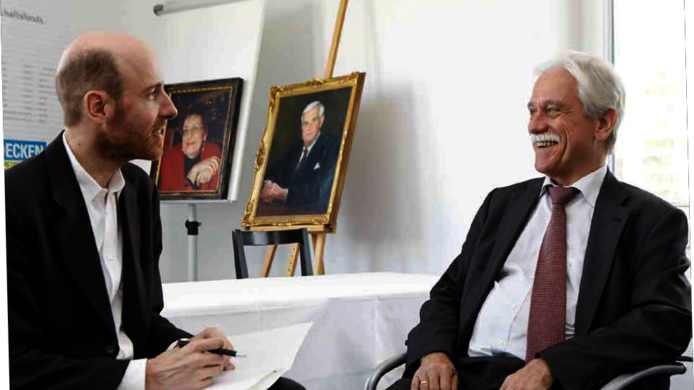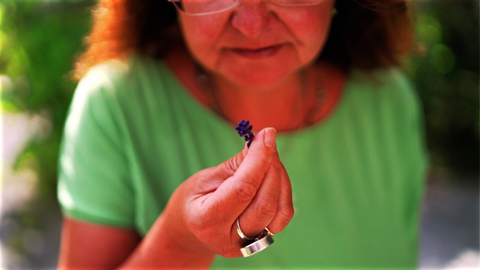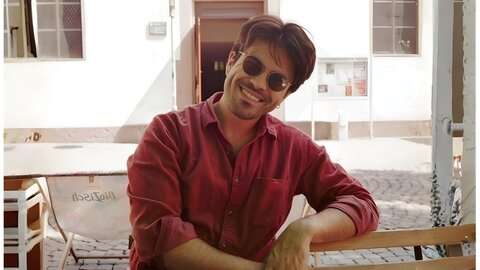Patrons for Research

FWF: Mr. Bauer, you were Curator of the Weiss Science Foundation, which came into legal existence on 4 June 2014. You look satisfied and relaxed. Is that how one feels as a patron?
Rudolf Bauer: I am not a patron but just Curator of the Foundation and now member of the Board of Directors, but I’m really satisfied and relaxed right now! I had the good fortune to have known two wonderful people – the two founders – who were really impressive personalities. I am connected to them with a lot of pleasant memories. Being a long-standing friend and confidante of Vera Weiss, she requested me – a few months before her death – to ensure that her will would be fully executed. I took this promise very seriously and – since her death on 13 April 2013 – made intensive efforts to execute the testamentary clauses of the deceased as carefully as I could. Some of it was pretty hard work. But now the Foundation’s statutes have been approved, the Foundation has been constituted in a legally valid manner, and I am sure all efforts have been made to ensure that the purpose of the Foundation can be fulfilled optimally and sustainably.
FWF: Could you briefly explain the testamentary mandate?
Bauer: It can be easily gleaned from the resumes of the two founders. Both of them started their professional career from the lowest rung of the ladder during the difficult post-war period, and made it to the top because of their immense enthusiasm and great personal commitment. Gottfried Weiss had a PhD in meteorology. After a successful career as a public official in Vienna he became the head of the WMO – the World Meteorology Organisation in Geneva – a special organisation of the United Nations. One of the tasks of this organisation is to promote research and training in meteorology and associated fields of science, and to actively contribute to the coordination of international aspects of such research and training projects. Vera Weiss served for several years as head of the department of anaesthesiology in the Gynaecology Clinic at the Cantonal Hospital in Geneva, which was one of the most renowned hospitals in the world at the time. Working with patients was of prime importance to her, but she still remained closely connected with research.
Thanks to a generous scholarship given by a pharmaceutical company, she had been an active scientist herself in her youth. As they had no legal heirs, Mr. and Mrs. Weiss decided, in the late eighties, to place their entire assets – which mainly consisted of real estate – at the disposal of science and research (specifically the specialities of the founders) after their death. Their purpose was to support research projects in anaesthesia and meteorology alternately every year at a highly qualified and recognized scientific institution of training or research within the country or abroad, and thus promote the development of both of these sciences. I was aware of these intentions of the two founders for several years and the provisions of their will were absolutely clear, but its technical feasibility in accordance with the wishes of the deceased were initially not as clear.
FWF: And this is where FWF comes into play.
Bauer: That’s right. In sorting out the practical options as to how the assignment of such research scholarships would be, we spoke to many persons including Susanne Kalss, Professor at the Institute for Civil and Corporate Law at the Vienna School of Economics. One of her points of focus at work is foundation law. She was the one who gave us the decisive and most important piece of advice. She advised us to contact FWF, specifically Gerhard Kratky, who was in charge of the sector known as Patronage for Research, and was making efforts to procure private resources for science and research in Austria. We are very grateful to Susanne Kalss for this crucial bit of advice because it almost cut the Gordian knot.
FWF: Why the Science Fund?
Bauer: All our inquiries and deliberations convinced us that we could not serve the purpose of the Foundation better. The Foundation is required to fulfil the highest scientific requirements, must be sustainable and transparent and – most importantly – its selection of research projects must be entirely independent and free of any type of intervention.
All of these values concur with the principles of the two founders and are upheld by FWF, as we see it. By selecting the Science Fund we have selected a partner who has proven – for more than 45 years – that independent promotion of research in accordance with international standards is possible in Austria. The FWF is an independent and intervention-resistant organisation, networked internationally in the scientific sector (which is very important to us for evaluating the submitted projects), yet maintains the necessary equidistance to the individual research institutions. This concurs exactly with the intentions of the founders. I am convinced: the high expertise and the strong quality orientation of FWF will ensure that only persons representing the highest standards of quality in science will be promoted, and the research projects themselves will be executed professionally and in keeping with international standards. As Curator of the Foundation and a future member of the Board of Directors of the Foundation, I was obviously won over – last but not least - by the fact that FWF is able to provide all of its services free of cost for philanthropic contributions, thus serving the enhancement of research in Austria. A very noble gesture! Consequently, the revenue of the Foundation is not cut short by expenses for administrative work, but can be used to its fullest extent for achieving the purpose of the Foundation.
FWF: What are the assets of the Foundation?
Bauer: The Foundation has been established according to the Federal Foundation and Fund Act, and includes the entire possessions of Mr. and Mrs. Weiss, which mainly consist of real estate and are fully at the disposal of the Foundation. We assume that the management of this real estate will enable us to provide 200,000 to 300,000 Euros every year for research projects.
FWF: Judging by your words, the accomplishment of this goal was no cakewalk.
Bauer: No, it truly wasn’t. The establishment of the Foundation was very arduous, although it was not the fault of individual persons or official authorities. On the contrary – we are grateful to the Financial Procurator’s Office, which first had to make an official declaration of the conditional acceptance of the inheritance, as well as the Municipal Department No. 62 (the official foundation authority) for the cooperative climate of dialogue as well as their active support. Even the tax authorities and the relevant district court were very cooperative when we approached them with our cause. The fact that the establishment of the Foundation was still arduous was simply because of the current basic conditions, legal as well as social, and the occasionally crippling bureaucratic structures that tend to serve as stumbling blocks.
FWF: Is it because of the Foundation’s non-profit tax status?
Bauer: Yes and no. No, because the support of fiscal authorities with regard to the non-profit status was distinctly positive in our case. I think the problem is not the will of the individual protagonists, but the legal framework – it’s cumbersome and liable to arrest one’s progress. Sometimes I had the feeling that we were moving in an atmosphere of mutual structural distrust. On the one hand it looks as if every private person or party is automatically suspected of not consistently working for the common good, but on the other hand as a private person or organisation one is easily tempted to accuse the state of having bred a network of regulations that seem to be an end in themselves and are intended to be prohibitive. One probably needs a large measure of persistence to do good work with private resources through a foundation.
FWF: That sounds rather daunting.
Bauer: No, one should never be daunted by it. However, it definitely is a plea to the government and the lawmakers in this sector to create a fundamentally different legal framework and send encouraging signals to private institutions and persons, urging them to do philanthropic work through a Foundation in Austria. What is daunting are the currently high costs of establishing a non-profit foundation. Especially the fee for registering a foundation in the Registry of Deeds, which is oriented to the market value of real estate (1.1 percent), is a significant burden. Clear guidelines that would guide one through the administrative jungle would be a very helpful first step. Then of course the support of the media would be helpful, confirming the existence of altruistic persons in our times, who hold common good near and dear and are not merely focused on tax evasion. I think a look at Germany would be an advisable initial approach in terms of policy. The Donors’ Association for the Promotion of Humanities and Science in Germany, per my knowledge, consists of about 3000 members from the civil population. That definitely cannot be fully attributed to differences in mentality and culture.
FWF: Were Gottfried and Vera Weiss uncharacteristic Austrians?
Bauer: In many respects they were exemplary and extraordinary. However, I also remember many conversations during which they exhibited typical Austrian traits, so to speak. Both of them pursued their professions with heart and soul, were committed and ambitious. Both of them adhered to very high standards in all of their actions.
Possibly that was the reason why they went to Switzerland. In trying to understand the purpose of Vera Weiss’ will, one should keep in mind the fact that both of them worked in an international environment, where they became acquainted with a different foundation culture. As mentioned earlier, Vera Weiss herself had received a research scholarship at the beginning of her professional career, which enabled her to do scientific work and intensify her knowledge of her speciality. As a young anaesthetist it was a great opportunity for her and she was able to use it. I think this experience was one of the factors underlying her decision to do similar philanthropic work.
FWF: Were you satisfied with the support provided by FWF?
Bauer: Very much so. The responsibility to execute Vera Weiss’ will optimally and ensure its feasibility in the long term did cause me some sleepless nights. During the entire process of decision-making Gerhard Kratky supported us in a brilliant way. At this point I’d like to express my thanks for the fact that FWF, as mentioned earlier, did not charge anything for guiding us through the process and for their services in the promotion of research. Thus, all of the resources of the Science Foundation could be directed to the purpose for which they were intended by the founders and also where they were most urgently needed, namely in promotion-worthy meteorology and anaesthesiology projects.
In 2014 the Science Fund FWF was first able to cooperate with a non-profit research foundation. FWF acts as a trustee of the Gottfried and Vera Weiss Foundation. The two founders have bequeathed their legacy to research, for the purpose of supporting young scientists. Scholarships are awarded every year, alternately in the fields of anaesthesia and meteorology.





